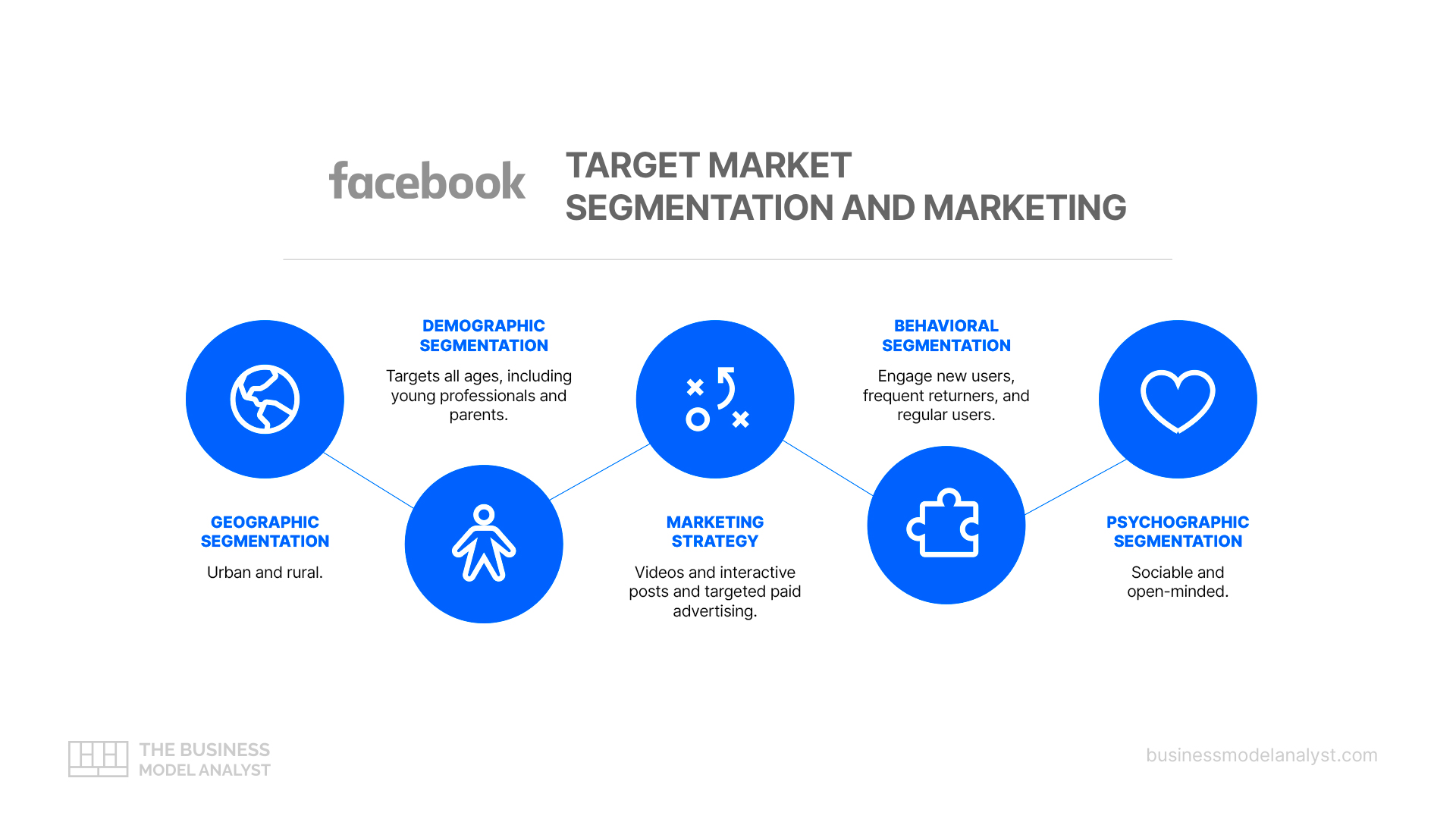Facebook, the social media giant, has successfully captured the hearts and minds of billions worldwide. But what exactly is the secret behind its immense popularity? The answer lies in its carefully crafted target market.
Who is Facebook's Target Market?
While Facebook is often associated with a younger demographic, its target market is surprisingly diverse. Here's a breakdown:
- Core Demographic: Primarily young adults aged 25-34. This group is highly active on the platform, sharing photos, videos, and engaging in discussions.
- Teenagers: A significant segment, especially in developing countries. Facebook provides a space for them to connect with friends, share interests, and express themselves.
- Older Adults: An increasingly active group on Facebook. They use the platform to stay connected with family and friends, share news, and participate in online communities.

How Does Facebook Target Its Users?
To effectively reach its diverse target market, Facebook employs a sophisticated segmentation strategy:
- Demographic Segmentation: Targeting users based on age, gender, location, education, income, and occupation.
- Geographic Segmentation: Tailoring content and ads to specific regions, cities, or even neighborhoods.
- Behavioral Segmentation: Identifying users based on their online activities, such as browsing habits, purchase history, and app usage.
- Psychographic Segmentation: Understanding users' lifestyles, interests, values, and attitudes to deliver personalized content.
Why is Facebook's Target Market So Effective?
Facebook's success can be attributed to several factors:
- User-Friendly Interface: The platform is easy to navigate and use, making it accessible to people of all ages and tech-savviness levels.
- Rich Features: From sharing photos and videos to joining groups and playing games, Facebook offers a wide range of features to keep users engaged.
- Strong Community: The platform fosters a sense of community, allowing users to connect with like-minded people and share experiences.
- Effective Advertising: Facebook's targeted advertising allows businesses to reach their ideal customers with precision.
What Does the Future Hold for Facebook's Target Market?
As technology continues to evolve, Facebook will need to adapt to changing user preferences and behaviors. Some potential trends include:
- Increased Focus on Video: Video content is becoming increasingly popular on Facebook, and the platform is investing heavily in video features.
- Rise of AI and Machine Learning: AI-powered tools can help Facebook better understand user preferences and deliver personalized content.
- Emphasis on Privacy and Security: As concerns about data privacy grow, Facebook will need to prioritize user security and transparency.
Call to Action:
- Share Your Thoughts: What do you think about Facebook's target market strategy? Share your insights in the comments below.
- Join the Discussion: Participate in online forums and discussions about Facebook's impact on society.
- Stay Updated: Follow industry news and trends to stay informed about the latest developments in social media marketing.
By understanding Facebook's target market and its strategies, you can leverage the platform to achieve your personal and professional goals.

Comments
Post a Comment